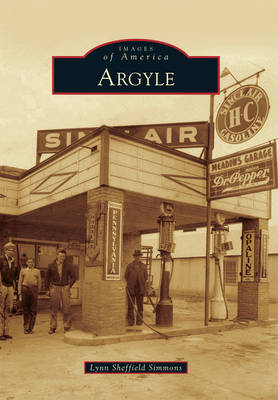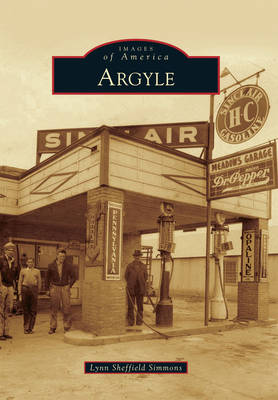
Bedankt voor het vertrouwen het afgelopen jaar! Om jou te bedanken bieden we GRATIS verzending (in België) aan op alles gedurende de hele maand januari.
- Afhalen na 1 uur in een winkel met voorraad
- In januari gratis thuislevering in België
- Ruim aanbod met 7 miljoen producten
Bedankt voor het vertrouwen het afgelopen jaar! Om jou te bedanken bieden we GRATIS verzending (in België) aan op alles gedurende de hele maand januari.
- Afhalen na 1 uur in een winkel met voorraad
- In januari gratis thuislevering in België
- Ruim aanbod met 7 miljoen producten
Zoeken
Omschrijving
With its large trees and rolling hills, the small town of Argyle is nestled between the Grand Prairie and the Blackland Prairie. In the 1850s, settlers found Argyle's natural resources perfect for growing crops and raising cattle. In 1881, when the Texas and Pacific Railroad built tracks through Denton County, Argyle became a town. Those who led the way to bring modern conveniences and provide protection for the people of Argyle are pointed out in this book, which tracks Argyle's history from a farming community to a modern town. Through the years, Argyle's citizens have worked together to benefit the community through local charitable organizations that include the Argyle Food Pantry, the Argyle Seniors' Activities Center, the Communities Civic League, Inc., and the Argyle Education Foundation.
Specificaties
Betrokkenen
- Auteur(s):
- Uitgeverij:
Inhoud
- Aantal bladzijden:
- 128
- Taal:
- Engels
- Reeks:
Eigenschappen
- Productcode (EAN):
- 9780738584966
- Verschijningsdatum:
- 7/11/2011
- Uitvoering:
- Paperback
- Formaat:
- Trade paperback (VS)
- Afmetingen:
- 163 mm x 231 mm
- Gewicht:
- 317 g

Alleen bij Standaard Boekhandel
+ 69 punten op je klantenkaart van Standaard Boekhandel
Beoordelingen
We publiceren alleen reviews die voldoen aan de voorwaarden voor reviews. Bekijk onze voorwaarden voor reviews.









